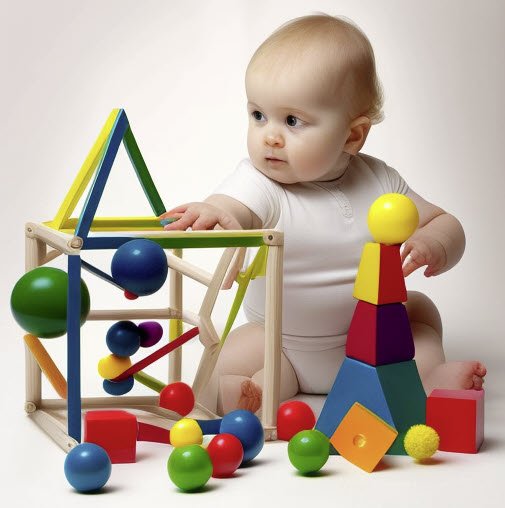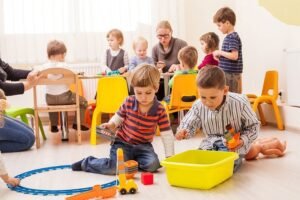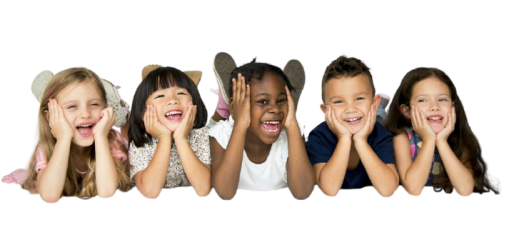“Nurturing the Future, One Child at a Time”
Introduction
Early child development is an important part of a child’s overall growth and development. It is the process of physical, cognitive, social, and emotional growth that occurs in the first five years of life. During this period, children learn the skills they need to become successful adults. Early child development is a complex process that is influenced by a variety of factors, including genetics, environment, and parenting. Research has shown that early experiences can have a lasting impact on a child’s development, so it is important to provide children with the best possible start in life.
The Benefits of Early Childhood Education
Early childhood education is an important part of a child’s development. It is a time when children learn the basics of the language, math, and social skills. Research has shown that early childhood education can have a positive impact on a child’s future academic success.
One of the most important benefits of early childhood education is the development of language skills. Children who attend early childhood education programs are exposed to a variety of language experiences. They learn to recognize and use words, understand the meaning of words, and develop the ability to communicate effectively. This early exposure to language helps children develop the skills they need to succeed in school.
Early childhood education also helps children develop math skills. Through activities such as counting, sorting, and problem-solving, children learn the basics of mathematics. This early exposure to math helps children develop the skills they need to succeed in school.
In addition, early childhood education helps children develop social skills. Through activities such as playing with other children, children learn to interact with others in a positive way. This helps them develop the skills they need to succeed in school and in life.
Finally, early childhood education helps children develop self-confidence. Through activities such as art, music, and physical activities, children learn to express themselves and take pride in their accomplishments. This helps them develop the skills they need to succeed in school and in life.
Overall, early childhood education is an important part of a child’s development. It helps children develop the language, math, social, and self-confidence skills they need to succeed in school and in life.
The Impact of Parental Involvement on Early Child Development
Parental involvement is a critical factor in the early development of a child. Research has shown that when parents are actively involved in their child’s life, the child is more likely to have better academic performance, better social skills, and a stronger sense of self-esteem. Parental involvement can take many forms, such as providing emotional support, helping with homework, and attending school events.
Studies have found that when parents are involved in their child’s education, the child is more likely to have higher grades and test scores. This is because parents can provide guidance and support to help their child understand the material and stay on track with their studies. Additionally, when parents are involved in their child’s education, they can help their child develop better study habits and time management skills.
Parental involvement can also help a child develop better social skills. When parents are involved in their child’s life, they can help their child learn how to interact with others, build relationships, and resolve conflicts. Additionally, when parents are involved in their child’s life, they can provide guidance and support to help their child develop a strong sense of self-esteem.
Finally, parental involvement can help a child develop a strong sense of identity. When parents are involved in their child’s life, they can help their child understand their culture, values, and beliefs. This can help a child develop a strong sense of self and a better understanding of the world around them.
In conclusion, parental involvement is a critical factor in the early development of a child. Research has shown that when parents are actively involved in their child’s life, the child is more likely to have better academic performance, better social skills, and a stronger sense of self-esteem. Therefore, it is important for parents to be involved in their child’s life in order to help them reach their full potential.
The Role of Play in Early Child Development
Play is an essential part of early child development, providing children with the opportunity to explore, learn, and grow. Through play, children are able to develop physical, cognitive, social, and emotional skills.
Physical development is enhanced through play as children use their bodies to explore their environment. Through activities such as running, jumping, and climbing, children are able to develop their gross motor skills. Fine motor skills are also developed through activities such as drawing, building, and manipulating objects.
Cognitive development is also promoted through play. Through activities such as puzzles, blocks, and pretend play, children are able to practice problem-solving and critical thinking skills. They are also able to practice language skills as they interact with others and learn new words.
Social and emotional development is also fostered through play. Through activities such as cooperative play, children are able to learn how to interact with others and develop social skills. They are also able to practice self-regulation and emotional control as they learn to manage their emotions.
Play is an important part of early child development, providing children with the opportunity to explore, learn, and grow. Through play, children are able to develop physical, cognitive, social, and emotional skills. It is important for parents and caregivers to provide children with a variety of play opportunities in order to foster their development.
The Benefits of Music and Art in Early Childhood Development
Music and art are two of the most important elements of early childhood development. They provide children with the opportunity to express themselves, develop their creativity, and learn important skills. Research has shown that music and art can have a positive impact on a child’s cognitive, social, and emotional development.
Music has been found to be beneficial for children in a variety of ways. It can help to improve their language and literacy skills, as well as their ability to focus and concentrate. Music can also help to improve a child’s memory and problem-solving skills. Additionally, music can help to reduce stress and anxiety in children, as well as improve their mood and self-esteem.
Art is also an important part of early childhood development. It can help to foster creativity and imagination in children, as well as improve their fine motor skills. Art can also help to improve a child’s problem-solving skills, as well as their ability to express themselves. Additionally, art can help to improve a child’s self-esteem and confidence.
In conclusion, music and art are two of the most important elements of early childhood development. They provide children with the opportunity to express themselves, develop their creativity, and learn important skills. Research has shown that music and art can have a positive impact on a child’s cognitive, social, and emotional development. Therefore, it is important for parents and educators to ensure that children have access to music and art activities in order to maximize their potential.
The Benefits of Socialization in Early Childhood Development
Socialization is an important part of early childhood development. It is the process of learning how to interact with others and developing the skills necessary to form meaningful relationships. Socialization helps children learn how to communicate, cooperate, and resolve conflicts. It also helps them develop a sense of self-worth and belonging.
The benefits of socialization in early childhood development are numerous. Socialization helps children learn how to interact with others in a positive way. It teaches them how to express their feelings and opinions in a respectful manner. It also helps them develop empathy and understanding for others. Through socialization, children learn how to take turns, share, and cooperate with others.
Socialization also helps children develop problem-solving skills. Through socialization, children learn how to identify and resolve conflicts. They learn how to negotiate and compromise with others. This helps them develop the skills necessary to handle difficult situations in the future.
Socialization also helps children develop a sense of self-worth. Through socialization, children learn how to make friends and build relationships. This helps them feel accepted and valued by their peers. It also helps them develop a sense of belonging and identity.
Finally, socialization helps children develop a sense of responsibility. Through socialization, children learn how to take responsibility for their actions and how to respect the rights of others. This helps them develop a sense of responsibility for their own behavior and for the behavior of others.
In conclusion, socialization is an important part of early childhood development. It helps children learn how to interact with others in a positive way, develop problem-solving skills, build relationships, and develop a sense of self-worth and responsibility. Socialization is essential for children to develop the skills necessary to become successful adults.
Conclusion
Early child development is an important part of a child’s overall development. It is essential for parents to provide a safe and nurturing environment for their children to ensure that they reach their full potential. Early child development is a complex process that involves physical, cognitive, social, and emotional development. It is important for parents to be aware of the various stages of development and to provide the necessary support and guidance to their children. Early child development is a lifelong process that can have a lasting impact on a child’s future.








